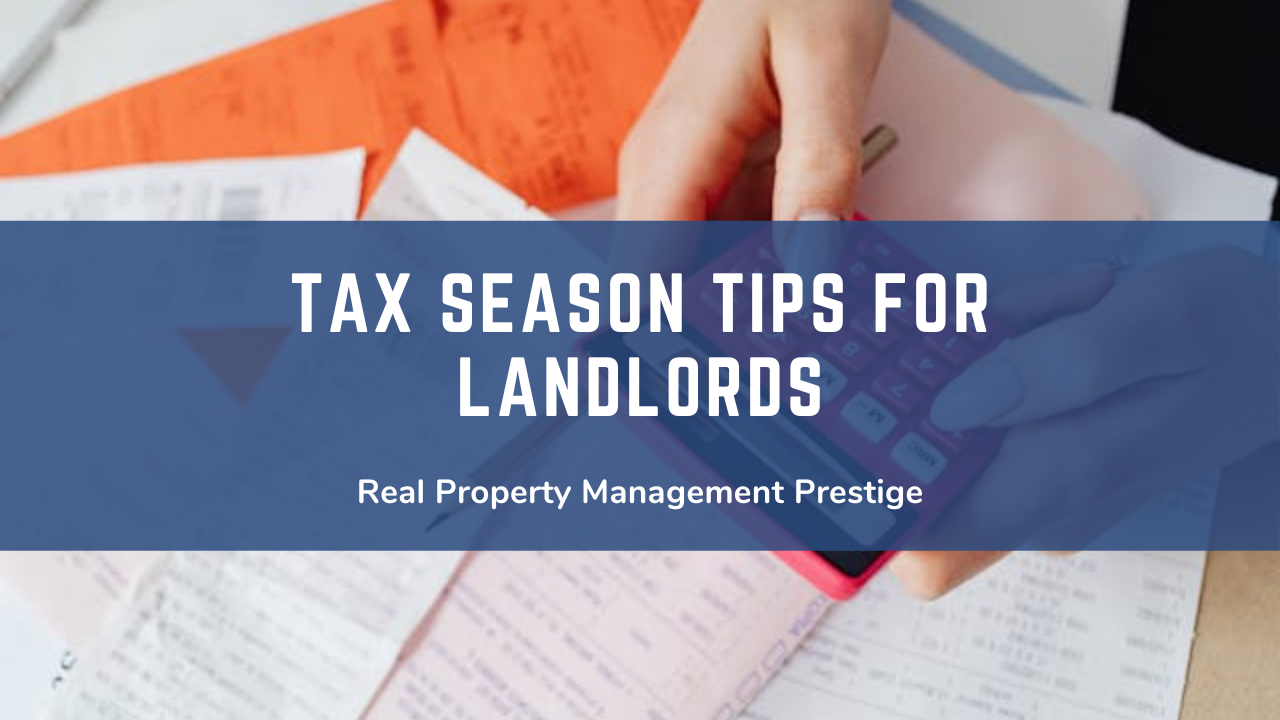 Key Takeaways
Key Takeaways
- Maximize your ROI by claiming all eligible tax deductions, including mortgage interest, depreciation, and repair costs.
- Keep detailed and accurate records of income, expenses, and property documents to ensure smooth and compliant tax filing.
- Hiring a professional property manager can simplify the tax process and help you reduce your tax liability effectively.
The tax season is once again upon us. As a landlord, the season requires you to uphold one of your key legal responsibilities: filing taxes accurately and on time.
Under the Internal Revenue Service (IRS), you must report all rental income on your tax returns. Rental income is any money you have collected by renting out your property. This usually includes any payment you may have received for rent, rent advances, security deposits, and fees charged.
As you probably know, filing taxes isn’t for the fainthearted. The process can be quite the challenge. Between keeping up with evolving tax regulations, and categorizing the various income sources and expenses, the process can be anything but smooth-sailing. This is especially true if you’re just getting started as a landlord.
What’s more, one wrong move in the filing process could spell serious trouble for your investment.
Ideally, working with a professional guarantees the best outcome. A good property manager, specifically, will not only help ensure the filing process is a cinch, but will also help maximize your tax savings.
With that in mind, this blog by Real PM Prestige outlines 4 tax season tips for landlords in 2025 and beyond.
Maximize Tax Deductions
As a landlord, your #1 goal should be to generate an optimal return on investment (ROI). One way of doing that is to keep your expenses as low as possible. This is something that accurate tax filing can help you accomplish.
The IRS allows landlords to take advantage of numerous tax deductions, which can save you thousands of dollars every year. That’s why working with a professional is key. The right professional will help you take maximum advantage for an optimal return on investment.
With that in mind, here are some of the deductions the IRS allows for claiming by landlords:
Interest on Mortgage
As a landlord, this is often the largest deduction you will have if you finance your property through a mortgage. Luckily for you, the IRS allows a deduction on interest payments for loans used for things like the property’s acquisition or improvement.
Property Taxes
State and local property taxes are usually fully deductible. What’s more, there is no limit on the deductions you can make, unlike with residential residences.
Depreciation
This deduction can allow you to recover the property’s acquisition costs over its useful life. The specific schedule for an investment property is 27.5 years per the IRS.
Repairs & Maintenance
As a landlord, property upkeep is crucial for success. And the IRS allows deductions for ordinary and necessary repairs. Examples of these include routine landscaping, repainting, and fixing a leaky faucet.
Other deductions you can make as a landlord include: cost of running the property, traveling and transportation expenses, and losses due to theft or natural disasters.
Keep Accurate Records
As a landlord, keeping accurate records is key to successful investing. This is especially true if you intend to take maximum advantage of the aforementioned deductions.
The following are some of the documents you need to ensure are accurate and organized for a smooth tax season.
- All rental income you have received during the period. These will usually include income from rent payments, any late fees collected, withheld security deposits, and advance rent payments.
- Documentation for the costs of running the rental property. These include costs for rental advertising, cleaning and maintenance, insurance, legal and professional fees, repairs, traveling, and utilities.
- Any capital improvements you made to the property. These are expenses incurred for adding value to the property. Examples of capital improvements include installing new appliances, doing major renovations, and getting a new roof. And while these are not fully deductible for the year you incur them, you can depreciate them over time.
- Important documentation for the property. These include lease agreements, tenant screening documents, move-in and move-out checklists, mortgage documents, and property deeds.
These are the documents you’ll want to be meticulous in maintaining as you prepare for the upcoming tax season. And the IRS requires landlords to maintain such records for at least 3 years.
File the Taxes Meticulously
When it comes to investment properties, the method to use will depend on the property’s ownership status. If you are the sole property owner, you’ll need to report your rental income and expenses via the IRS Schedule E, Supplemental Income and Loss.
However, if the property’s ownership is shared between different individuals, then each co-owner will need to file separately.
For investment properties owned through a business entity, the reporting must be done via IRS Form 8825.
Regardless, the important thing is to ensure accurate and timely filing. This will ensure that you’re protected from significant financial and legal repercussions, while taking advantage of numerous tax deductions.
Hire a Property Manager
As already mentioned, filing taxes can be incredibly stressful and time-consuming. But luckily for you, it doesn’t have to be a headache. Working with a professional can help you make the most of your tax returns.
As a savvy landlord, your #1 goal is to save as much money as you can for optimal ROI. And the IRS ensures you have the opportunity to do so!
However, if you’re just starting out, you may not have sufficient experience to take maximum advantage. And that’s where a property manager comes in. A good property manager will have years of experience in the field and will know how best to minimize your tax obligations.
Conclusion
There you have it. 4 expert tips for landlords during the tax season. Remember, the goal is to keep your expenses as low as possible for optimum return on investment. And the tax season can help you do just that!
Real PM Prestige does more than just manage properties in Houston. You can trust us for professional service, and to keep your costs minimal and your income optimal! Get in touch to learn more about our services; we have more than 30 years of proven industry experience in Houston, TX!
We are pledged to the letter and spirit of U.S. policy for the achievement of equal housing opportunity throughout the Nation. See Equal Housing Opportunity Statement for more information.





